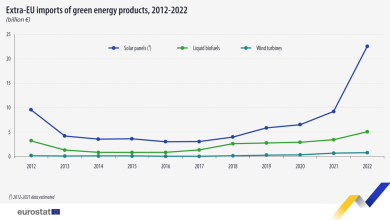Government Emergency Ordinance no 114/2018
Potential impact in the energy sector
The broad perspective
On 21 December 2018, the Romanian Government adopted the Emergency Ordinance no 114/2018 (GEO 114). GEO 114 regulates a broad range of industrial activities: sectors of strategic national importance, such as energy, banking and telecom, as well as other essential activities related to constructions, pension funds, public investments etc; nonetheless, the same GEO 114 regulates also aspects related to pensions, fruits and vegetables, kindergarten or social protection (?!)[1].
All these aspects are considered under GEO 114 as extraordinary and, as such, had to be regulated under an emergency ordinance. We will not dwell into the soundness of such statement, nor (re)open the discussions as to the constitutional role of the Government[2], but we will try to analyse exclusively the potential impact of GEO 114 in the energy field.
Main relevant amendments
The application of the taxes introduced under Government Ordinances no 5/2013 (i.e. tax applicable on the transport of gas and electricity) and 6/2013 (i.e. tax on revenues from exploiting natural resources, other that gas) are extended until end of 2021.
A number of new elements are (re)introduced under the Electricity and Gas Law no 123/2012:
- during 1 March 2019 – 28 February 2022, the households will be provided with electricity under regulated conditions (the same applied until end of 2017) – Art 22, para 11;
- for the same period, electricity producers must deliver to the last instance suppliers the electricity necessary for the households, while the remaining produced electricity is to be brought on the open market – Art 28, letter b1);
– during 1 April 2019 – 28 February 2022, the sale price for the gas produced in Romania will be capped at 68 RON/ MWh. The producers will have to sell their gas to their suppliers first to cover the households’ necessities – Art 124.
EO 33/2007 regulating the Romanian Energy Regulatory Authority (ANRE) organization and functioning:
- a 2% tariff computed on the turnover obtained from ANRE licensed activities is introduced (Art 2, para 31).
Specific comments
Capping the sale gas price
The measure was justified by the Minister of Finance based on the immoral/ unfair behaviour against the Romanian economy of the gas producers.
It is by no means the government’s right to relax or worsen the country’s fiscal regime. If certain operators do not behave in a fair manner, then rules must be put in place (or existing laws applied) in order to eliminate such behaviour, but capping the sale price is not the way to do it as it is an obvious state’s direct intervention into the free market (which is never acceptable).
Moreover, given the specifics of the Romanian petroleum fields (i.e. old, mature ones), capping the gas price will render part of them (particularly the small ones) non-economic (with immediate negative impact on royalties, income tax, jobs etc). Within this context, it is worth mentioning that the Romanian gas producers must pay royalties at the Vienna hub reference price (i.e. anyhow higher than the obtained price). At the date of writing this material, a large number of gas projects (i.e. drillings, work-overs, interventions etc.) have been put on hold particularly because economics do not fly anymore under the Government Emergency Ordinance no 114/2018 conditions.
The 2% tax on revenues from ANRE licensed activities
It is beyond doubt that for small actors operating in certain sectors (e.g. power distribution), the 2% tax marks the difference between life and death: most of them will likely go bankrupt. Sometimes, it is good to take out the less productive actors in a market (in order to enable fresh blood to come to surface), but the timing and analysis of such measures are essential (i.e. proper analysis must be made before adopting such measures; otherwise, the results may be overall more detrimental than beneficial). It is beyond doubt that in the case of Government Emergency Ordinance no 114/2018 a proper analysis was not made and the timing of such measure is more than questionable.
A text analysis of the respective provision renders that the period of computation of the 2% tax is not mentioned in the GEO 114. Only the ANRE draft methodology (under public debate at the time of writing this material)[3] clarifies[4] that is will retroactively apply for the previous year[5]. The same draft methodology sets forth that licensed operators must submit (by 20 February of the following year) to ANRE the computed revenues subject to the 2% tax.
Conclusions
It is worth noting that Romania is not unique when it comes to petroleum resources. In most cases, oil and gas investors literally look across the globe and select between various opportunities. They decide to invest based on certain criteria, one of the most important being the country risk (which involves, among others, regulatory aspects). Regulatory instability ranks very high on the risk matrix of such investors. If Romania keeps changing the rules of the game, the desire to invest in Romanian fields will drop to zero in no time.
The large Black Sea gas projects are waiting for final investment decisions, now the Government Emergency Ordinance no 114/2018 worsens their economics.
The Romanian energy realm experiences a turbulent period within less than a month from the enactment of GEO 114: with the RON/EUR exchange rate breaking (negative) record after record, the electricity price raising at a level just RON 30 under the all-time historical peak reached in the previous February 2017 the prolonged strike that took place at the coal based Oltenia Energy Complex, several operators struggling to have their 2019 budgets in place, most of the onshore gas projects temporarily suspended and some titleholders analysing legal ways to fight against application of GEO 114.
It seems almost the entire (private or state-owned) economic environment waits for the withdrawal of GEO 114. Yet, at the time of writing this material, there are indications that only Oltenia Energy Complex will be excepted from the 2% tax on revenue. The 2019 spring will not be a calm one…
[1] It is by far not the author’s intention to interpret that such aspects are not important. However, for obvious reasons, it would have been recommendable to include them in separate normative acts.
[2] Discussion have been carried out in the public arena with respect to the role of the Government’s emergency ordinances which are constitutionally designed to regulate exceptional situations; the emergency ordinance has become the customary and quite ordinary tool of the Government to issue legislative measures (i.e. replacing part of the Parliament’s constitutional role as rightful legislator).
[3] Available at: https://www.anre.ro/ro/presa/comunicate/proiect-de-ordin-privind-aprobarea-metodologiei-privind-calculul-si-stabilirea-contributiei-banesti-anuale-prevazute-la-art-2-alin-3-1-din-ordonanta-de-urgenta-a-guvernului-nr-33-2007-privind-organizarea-si-functionarea-anre-aprobata-cu-modificari-si-completari-prin-legea-nr-160-2012-astfel-cum-a-fost-introdus-prin-ordonanta-de-urgenta-a-guvernului-nr-114-2018-si-de-modificare-a-ordinului-224-2018 – as accessed on 24 January 2019.
[4] Please see Chapter II, Article 5 of the proposed methodology.
[5] The above tax may trigger a matter of legal validity: there is sufficient practice of the international commercial arbitration courts regarding the so-called ‘indirect expropriation’ – i.e. a state interferes in the benefits of an investment without actually taking the property.







